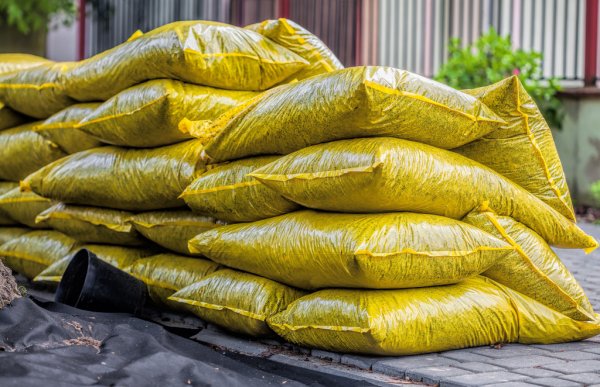$11.70 million Expended by the Africa Development Bank to Facilitate Access to Fertilizers for African Agricultural Producers
By Richard Adorsu-

Photo Credit: Deposit photos
NEW AFRICA BUSINESS NEWS (NABN) Accra GHANA- The Board of Directors of the African Development Bank has given the green light to the budget allocation of $11.70 million to the African Fertilizer Development Financing Mechanism (AFFM).
This budgetary allocation will allow the special fund created by the African Union to carry out its activities properly during the year 2023.
In addition to the budget envelope of $4.7 million which had been approved in 2022 and which is carried over to 2023, the African Development Bank therefore approves $11.70 million, which brings to $16.40 million, the 2023 budget of the African Fertilizer Development Financing Mechanism.
AFFM will also continue its resource mobilization efforts with other partners and seek disbursement of the balance of the $10.15 million pledge made by the Norwegian Agency for Development Cooperation (NORAD) in 2022 ( $8.6 million has already been paid).
At the same time, the Board of Directors validated AFFM’s 2023 program of activities: strengthening the fertilizer sector by focusing on access to finance, supporting the development of viable policy reforms to improve production, trade and use of fertilizers, and facilitating
smallholder farmers’ access to inputs and technical assistance.
In 2023, the mechanism plans to continue the implementation of three trade credit guarantee projects, for a total amount of $8.3 million. These are two projects of $2 million each in Côte d’Ivoire and Ghana, and a $4.3 million project in Zimbabwe.
Other projects involving trade credit guarantees for a total of $9.7 million will be implemented this year in Tanzania, Uganda, Mozambique and Kenya. Three other new projects could be launched in Senegal, Zambia and Ghana, if the United States Agency for International
Development (USAID) fulfills its commitment to allocate $15 million to AFFM.
The 2023 projects will be implemented in support of the second pillar of the African Emergency Food Production Facility, which the bank launched to address the food crisis caused by Russia’s invasion of Ukraine. In addition, AFFM will actively work with African countries and other key stakeholders in the detailed design of the national food and agriculture pacts that the continent’s leaders presented at the “Feed Africa” summit, held in Dakar in January 2023.
Aiming to facilitate smallholder farmers’ access to inputs and extension services through credit guarantee projects, AFFM plans to build their capacity as well as that of input dealers. Objectives: to guarantee the correct use of fertilizers, to increase agricultural productivity and to improve the state of the soil.
AFFM will continue its collaboration with the International Fertilizer Development Center (IFDC) and the Alliance for a Green Revolution in Africa (AGRA), as part of the initiatives launched in 2021 to improve the production, trade and use of fertilizer. It will also conduct an in depth analysis of fertilizer policy in at least ten African countries, which will draw up an inventory, identify gaps and lead to an action plan. It is a matter of providing support for the strategic orientations which will make it possible to remedy the weaknesses which will have been identified.
In 2023, AFFM will also forge strategic partnerships with key partners in the fertilizer and agriculture sector, to help improve food security in Africa.
Established by the African Union in Abuja in 2006, the African Fertilizer Development Financing Mechanism is a special fund that aims to improve agricultural productivity by providing the financing needed to boost the use of fertilizers in Africa and thus achieve the target
of 50 kilograms of nutrients per hectare. It is hosted and managed by the African Development Bank. The AFFM has adopted a strategic plan for the period 2022-2028.
AFFM’s action is crucial in Africa to deal with food crises and the various threats to food security caused by Russia’s war in Ukraine, climate change (drought, floods, soil depletion, etc.), conflicts , locust attacks and diseases.
For New Africa Business News Richard Adorsu Reports, Africa Correspondent
